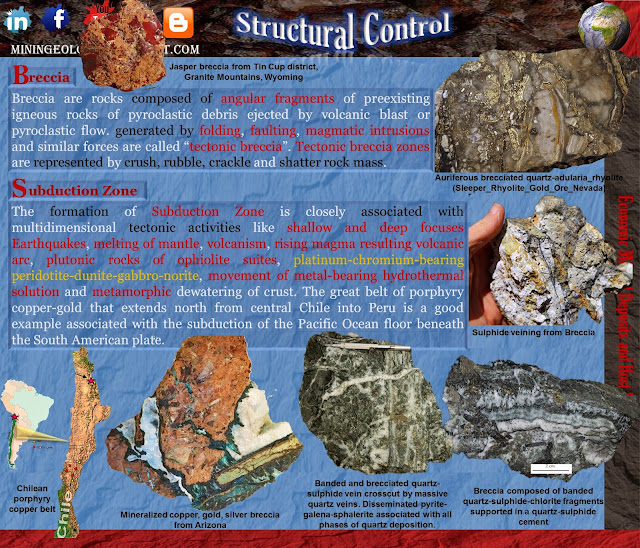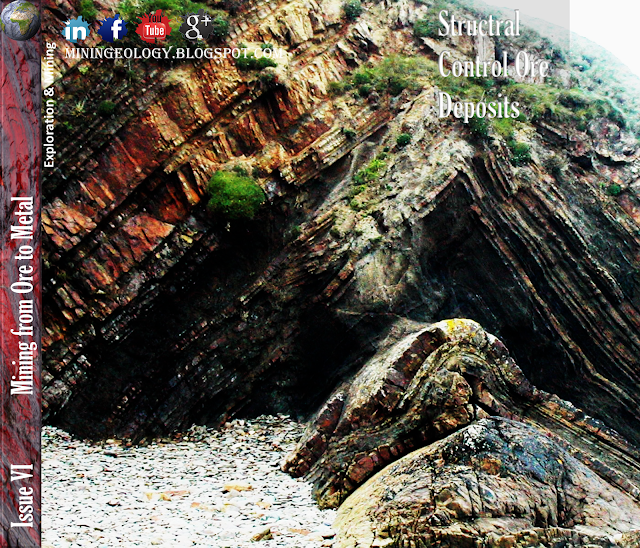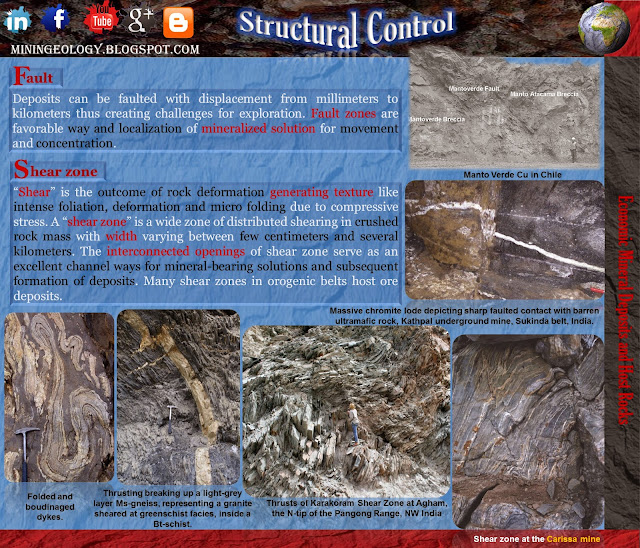Structure, tectonics and surface weathering play a vital role over geological time as a passage for hydrothermal flow of mineralized fluids, accumulate and concentrate at suitable location, remobilize and reorientate as postgenetic activity. The features related to mineralization control are deformation, weathering, joints, fractures, folds, faults, breccias and plate tectonics.
Un-Deformed
Most of the residual and placer deposits are un-deformed type such as East Coast bauxite deposit, India.
Joints and Fractures
They are caused by regional stress, break in the rock along which little or no movement have occurred. Mineralization often concentrates along these regular and irregular planes.
Fold
Caused by Directed compression of the crust. The fold closure, limb in-flex zone and axial planes are suitable for mineral localization. Mineral deposits are often folded during or after formation.
Fault
Deposits can be faulted with displacement from millimeters to kilometers thus creating challenges for exploration. Fault zones are favorable way and localization of mineralized solution for movement and concentration.
Shear zone
“Shear” is the outcome of rock deformation generating texture like intense foliation, deformation and micro folding due to compressive stress. A “shear zone” is a wide zone of distributed shearing in crushed rock mass with width varying between few centimeters and several kilometers. The interconnected openings of shear zone serve as an excellent channel ways for mineral-bearing solutions and subsequent formation of deposits. Many shear zones in orogenic belts host ore deposits.
Breccia
Breccia are rocks composed of angular fragments of preexisting igneous rocks of pyroclastic debris ejected by volcanic blast or pyroclastic flow. generated by folding, faulting, magmatic intrusions and similar forces are called “tectonic breccia”. Tectonic breccia zones are represented by crush, rubble, crackle and shatter rock mass.
The formation of Subduction Zone is closely associated withmultidimensional tectonic activities like shallow and deep focuses Earthquakes, melting of mantle, volcanism, rising magma resulting volcanic arc, plutonic rocks of ophiolite suites, platinum-chromium-bearing peridotite-dunite-gabbro-norite, movement of metal-bearing hydrothermal solution and metamorphicdewatering
 |
| Structural Control 3 |











0 komentar:
Post a Comment